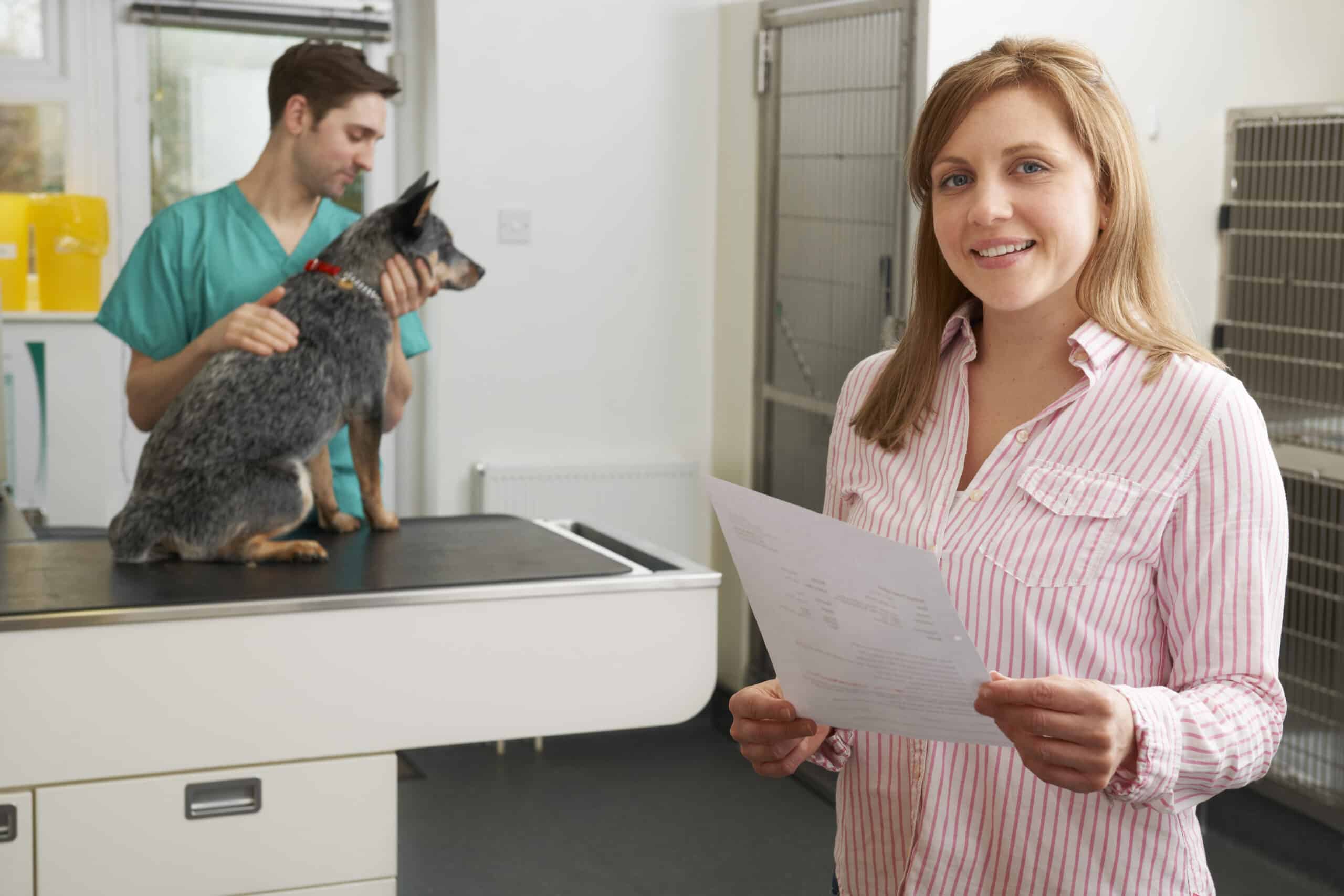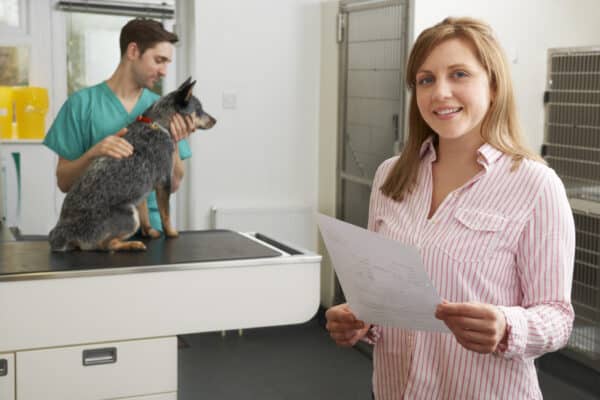I’ve always been good at asking questions. It’s part of the reason I became a writer. I like to ask the questions for which I may not have the answers.
Imagine my elation when my dog’s veterinarian, upon first meeting, had questions for me. A sigh of relief washed over me, and I am certain the vet sensed my surprise and glee in finding “the one.” If you are a dog parent/owner/guardian, finding a veterinarian you feel as comfortable as possible with can be a laborious and nerve-wracking decision. In fact, I offer that it is one of the most intimate relationships we form outside of our close circle of family and friends.
My wish for any dog parent reading this is the one that has bestowed itself upon my life: To have a veterinarian who cares, “gets” it, and treats your dog like a patient. Dr. Steven Gloates, of Vetcetera, embodies a special combination of knowledge, compassion, a skilled surgeon’s hand, and true care for his patients, whether or not the owners are present in the room.
Here are some of the questions you should expect to hear your veterinarian asking you. If he or she isn’t, feel free to bring the issues up. Questions create conversation and dialogue, and since you are the voice of Fido, be the pet parent your dog knows you are.
The 6 Questions Your Dog’s Vet Should Be Asking You
1. Have there been any abnormalities, changes in behavior, or anything that doesn’t seem like your dog’s usual behavior?
What might seem like typical aging behaviors for older dogs or energetic silly behaviors for a puppy might be disguising something else. A dog slowing down could be arthritis, but there are a variety of reasons dogs slow down. When my previous Cocker Spaniel turned eight, she was diagnosed with an underactive thyroid. Medicine took care of it, but it was during my dialogue at the veterinarian’s office that a thyroid panel was discussed. A thyroid test determines if the thyroid gland is producing too little thyroid hormone. If your vet isn’t asking you if there have been any changes since your last visit, be sure to bring it up yourself. The only dumb question is the one left unasked.
2. What do you feed your dog?
While this seems simplistic and maybe even trite, dietary changes are important to note. Your dog’s veterinarian should be aware of the type of diet you feed your dog, and equally important, how much of it Fido eats. Dogs are obese because we make them that way. According to the Association for Pet Obesity Prevention, more than 54 percent of pets in the United States are considered obese. The labels on the back of dog food cans and bags are put there by the manufacturer, so it may not be in your dog’s best interest to feed 3 1/4 cups of food, for example (especially if your dog is a Dachshund). One diet does not fit all, so vets need to ask what we are feeding our dogs, and the frequency and the quantity. If not, dish out the truth: Fido will thank you for it in the long run.
3. What medications and/or supplements do you give your dog?
Yes, veterinarians keep records, but times change, and anything new or out of the ordinary should be reported to the dog’s doctor. Topical flea preventatives, for example, should be used with caution, and any over-the-counter pills, ointments, or nutraceuticals should be cleared with your vet first. I get the warm fuzzies when Dr. Gloates asks me if Dexter is on any new meds. It means he cares.
4. Do you have an emergency plan, and do you know who to call for an emergency outside of my office hours?
Though this question need not be asked on every visit, at some point, your dog’s vet should be letting you know what his office hours are and where he refers emergency situations after hours. Keep that number handy. In fact, add it to your cell phone’s contact list along with the address of the clinic.
5. Do you have any questions about the exam, medications, or the type of blood work/tests I will be doing?
Once upon a time, I had a family doctor who seemed offended and annoyed when I asked him questions. I never went back. I like to know what is being done and the reason tests are being performed. If you are sending me home with a bottle of pills, ensure I know the potential side effects. Your vet should take a moment to ask and answer questions.
6. Are you brushing your dog’s teeth and checking his ears and gums, and do you need any instruction on this?
I think of my hair stylist as I type this, since she told me once, “I tell folks I’m a beautician, not a magician.” The same holds true for vets. They can help us if we are equal advocates and partners in caring for our pets outside of office visits. Please, vets, if you are reading this, ask your clients about teeth brushing and ear/skin/gums inspection. I know you are busy, and many of you probably do it, but knowing you cared enough to ask means a lot to most of us.
As you prepare to leave the office, never be afraid to ask anything that might be lingering. If you are like me, once you get home, a few questions will run through the mind. Call your vet back. The staff is there to help.
Dogster readers, are you happy with the relationship you have with your dog’s veterinarian? Bark at us below!
Featured Image Credit: MachineHeadz/Getty Images
Contents
- The 6 Questions Your Dog’s Vet Should Be Asking You
- 1. Have there been any abnormalities, changes in behavior, or anything that doesn’t seem like your dog’s usual behavior?
- 2. What do you feed your dog?
- 3. What medications and/or supplements do you give your dog?
- 4. Do you have an emergency plan, and do you know who to call for an emergency outside of my office hours?
- 5. Do you have any questions about the exam, medications, or the type of blood work/tests I will be doing?
- 6. Are you brushing your dog’s teeth and checking his ears and gums, and do you need any instruction on this?













